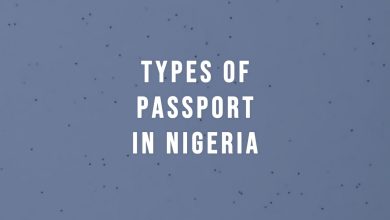How To Open Bank Account In Nigeria
Opening a bank account was extremely laborious in the early days of banking operations. You most likely recall needing to visit several locations to obtain photocopies of the necessary certifications and passport photos. Long lines that conclude with the phrase “come back after 7 working days” typically follow this. Thankfully, the burden of opening a bank account in Nigeria and its related criteria has significantly decreased, thanks to technological advancements.
These days, all it takes to create an account at a bank is a few minutes when you go in, or you may open an account entirely online. Nowadays, even digital banks handle millions of dollars worth of transactions daily without any physical branches. It’s still simpler and easier, but you still need to provide certain documentation for compliance. This article covers the prerequisites for opening a bank account in Nigeria and a list of some of the KYC papers you’ll need to bring.
Contents
The Importance of Having a Bank Account
You require a typical bank account for several reasons, including wage payments, loan disbursements, and receiving transfers locally and abroad. This is still true even with the growth of digital banking tools like prepaid cards and mobile money.
Conventional bank accounts are linked to every digital transaction you make, and information about those transactions is frequently needed to verify your eligibility for certain programs. The loan application process is a prime illustration of this. The bank checks your credit history with the credit bureaus for evidence of your financial stability before approving a loan. After that, no substitute digital banking platform was available. It is advised to comprehend the three tiers of the Central Bank of Nigeria’s (CBN) Know-Your-Client (KYC) process.
Which Documents Are Needed in Nigeria to Open a Bank Account?
Depending on the bank and the kind of account, original documents are needed to create a bank account in Nigeria. All banks must, however, comply with some broad standards established by the Central Bank of Nigeria (CBN). Among them are:
- Copies of identity documents recognized across the country (NIN, driver’s license, international passport, national identification card, and any other document the bank deems suitable)
- Copies of the photos on passports
- Issued a utility bill for the previous three months
- The number that verifies your bank (BVN)
These papers must be submitted alongside your data, which includes your complete name, address, and contact details (cell phone and email). Remember that certain banks demand a deposit at the time of application.
How much time does it take to activate a bank account?
Most bank accounts are active 24 hours after they are opened. However, depending on the kind of account, this period may vary and be longer. For instance, setting up a domiciliary account will take longer than setting up a local account.
Without BVN, how can I open an account?
No. To open an account with any Nigerian bank, you must have a BVN. On the other hand, not all mobile money accounts require that you supply a BVN. However, they cannot be used like a conventional bank account and have more restrictions.
Bank Verification Number (BVN)
Every individual in Nigeria’s banking system is assigned a special number known as their Bank Verification Number (BVN). This centralized system links biometric data—like fingerprints and facial recognition—with an individual’s personal information. The BVN contributes to greater security and transparency in the banking sector by verifying and authenticating the identities of bank clients.
To finish registration, people had to visit their local banks, provide their biometric data, and provide personal details like name, address, and birthday. These details were then included in the unified database.
Upon registration, customers received a unique 11-digit BVN that was their Nigerian bank’s identity number. Banks could quickly and effectively confirm their customers’ identities using the BVN, reducing fraud risk and promoting financial transparency.
Since its establishment, acquiring the BVN has been required in Nigeria to open new bank accounts. Current account holders must link their accounts to their BVN to ensure compliance with the directive. Thanks to the BVN system, the integrity of the Nigerian financial system has been strengthened, and fraudulent behavior has been effectively reduced.
Conclusion
Even though technology has made creating an account in Nigeria easier, certain KYC papers are still required. To create a bank account in Nigeria, you must present certain documents, such as utility bills, a valid ID, a passport photo, and basic contact information.
